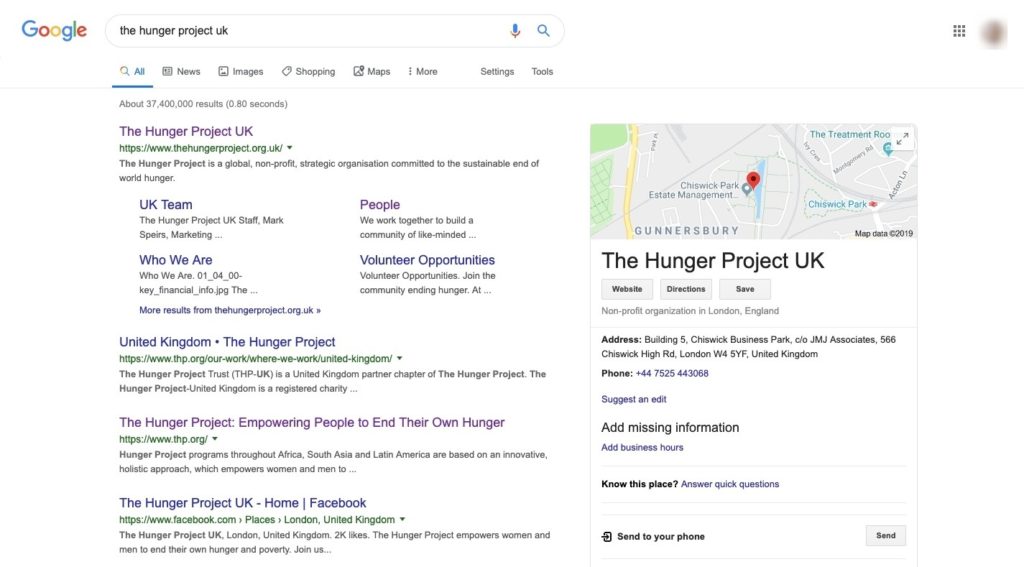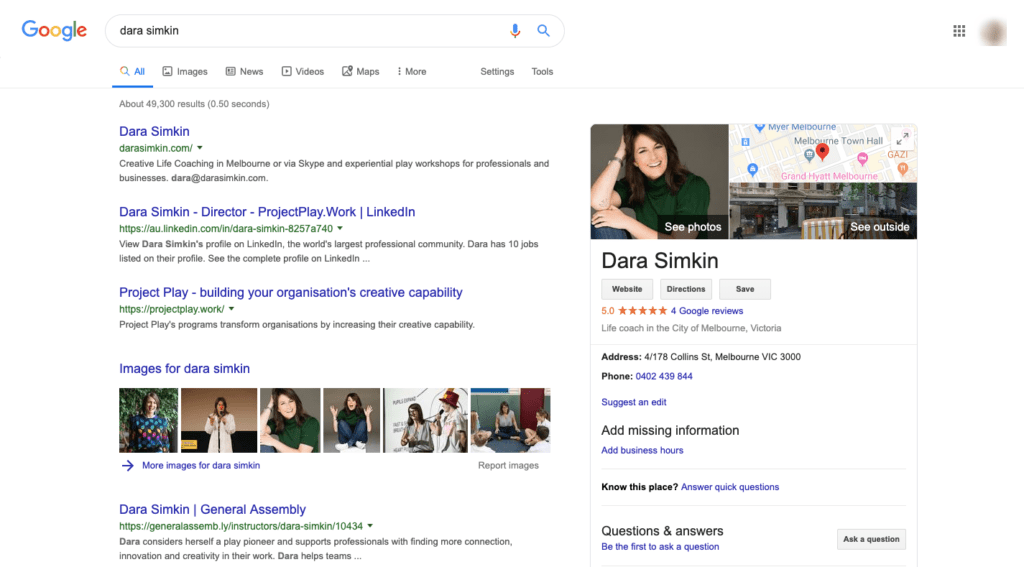As humans, we inherently trust recommendations provided by those closest to us — friends, family, community and more. That’s why word-of-mouth marketing is a really good way to bring new clients to your coaching business.
If your clients are pleased with the work you’ve done, they’ll be happy to share their first-hand experiences with personal connections.
But it shouldn’t stop there. Public endorsements you get from clients can go a long way in convincing others to take the leap with you, too. If you think about it, it makes sense why prospects would trust online reviews or testimonials almost as much as they trust referrals from close personal connections.
Why do we ask someone for a recommendation in the first place? Because we want proof that something (or someone) works as promised, right? So, they give us details we might not otherwise get (or naturally trust) from a company’s website or product listing. These consumers were in the same exact position we find ourselves, so the sharing of their experiences puts our minds at ease and makes the decision-making process easier.
There’s a lot of value in leveraging the trust clients have in you as a coach. So, rather than passively wait for them to recommend closer personal connections to you, why not give their words a platform where they can help you make a greater impact on others’ lives?
Here’s what you can do:
1. Go above and beyond
Before you start exploring ways to get referrals and reviews from clients, first give them something worth sharing. Don’t just focus on dotting the i’s and crossing the t’s. Although the details still matter, your clients want to know that you care more about cashing their checks. This is about helping them discover their goals and guiding them along the journey towards realising them.
In other words, find ways to add more value and really wow clients with the focus and support you give them. That’ll get them talking.
2. Have a brand that you’re proud of
You began coaching with a clear purpose: to change people’s lives. Does the brand image and messaging for your business clearly communicate that? The reason I ask is because word-of-mouth marketing has to lead to somewhere and, in this day and age, it’s likely to end up on your website.
When you look at your coaching website, though, is it something you’re proud of? What’s more, is it something you think your clients would be proud to be associated with?
If your brand image and message are unclear, or you’re unhappy with how your brand is portrayed on the website, get that in order before you work on creating a word-of-mouth marketing strategy. Your website is a testament to who you are and what you do. Get that right and you’ll be able to frame your testimonials in the best light possible, which will encourage more clients to share their stories and names with others.
3. Create a Facebook business page
There are a number of social media platforms you can establish a presence on. However, in terms of what you’re about to do with word-of-mouth marketing, I’d suggest starting with Facebook.
Not only does a Facebook business page give you a chance to build a community, but it gives you a high-profile place to gather reviews from clients. Plus, people are more likely to leave positive reviews there than anywhere else on the web, which is great for reinforcing trust within your community and around your business.
4. Set up a Google business listing
Google My Business is a free tool that allows you to create a company profile for search results. The only catch is that Google requires you to attach a physical address to the page first.
While many coaches work virtually, that doesn’t necessarily mean they should be deterred from using this tool to improve the visibility of their business or to encourage clients to leave reviews there. To get around Google’s requirement, you’d simply have to set up a P.O. Box in the name of your business. That way, no one needs to know where you live and you still get to reap the benefits of getting Google’s help in search results.
Here’s how it works:
When someone does a search for your coaching business, your profile shows up all large-and-in-charge like this example of The Hunger Project:
It’s not just programs with bricks-and-mortar that can create Google My Business profiles. Here is an example of the one that shows up whenever someone Googles Dara Simkin (note the 5-star review that makes her profile stand out even more, too):
Also, notice how they dominate the top part of search results. If you can get clients to start leaving reviews here, you’ll further improve your visibility and credibility in search.
And speaking of reviews…
5. Ask for reviews
Having an online presence is not enough to prompt clients to leave reviews on sites like Facebook or Google, or to pipe up and say:
“Hey, I really want to write a testimonial for your website!”
Nope, you’re going to have to ask them for it.
I recognise that asking for a review or testimonial can be nerve-wracking or stressful. However, if you know that the work you did has had a huge impact on their lives, the “yes” and glowing recommendation is nearly a given. And if they’re passionate about the strides they’ve made, they should be more than happy to shout your praises if it helps someone in a similar situation make progress, too.
There are a number of ways to do this:
- Ask for a testimonial on your final call together.
- Write up a testimonial from the praise they’ve showered upon you along the way and send it to them for consideration.
- Send an automated message with a link to one of your review pages, emphasizing the importance of letting others know about their experience.
- Send a link to a feedback form on your website. On the final page, ask if they’d like to provide a testimonial for others to use to make up their minds about your coaching service.
One other thing to do is to set up alerts on social media and Google search. If anyone says anything about you or your coaching business, don’t be afraid to message them and ask if you can highlight it on your website.
Take control of your word-of-mouth marketing strategy
The above suggestions might seem like small enough changes. However, they can have a huge impact on your business.
That’s because word-of-mouth marketing can do much more than just leave you sitting around waiting for random new clients to knock on your door. If you use the strategy above, you can leverage your clients’ kind and honest reviews of your services to steadily bring new business to you.
Just remember that you have to give clients an experience that’s worth talking about. And that you should continue to foster positive relationships with them even once they’ve given you a review or testimonial. Your community will never stop advocating for you so long as you do the same for them.

Suzanne Scacca
Content Writer
Suzanne Scacca is a freelance writer, specialising in web design, marketing, and technology. She also teaches classes at Skillshare and is a sucker for movies, food, and dogs.
















0 Comments